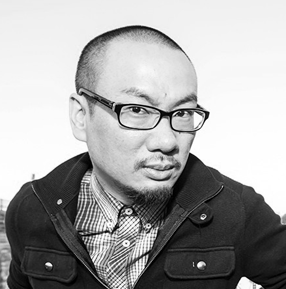(We are the lines we won’t cross)
Who hasn’t given up their seat to a man who says
he can’t stand to sit with his back to the door.
Who hasn’t waited, preoccupied with the thoughts of escaping
this or that war, or sweatshop, or relationship,
(To be Asian American is to be told what you deserve)
by now learning that almost all stories in life end in some type of heartbreak—
exhausted, turning your back:
and in so doing, making you vulnerable
to the combustion that is human interaction.
(Every human being alive and dead is a cautionary tale)
Before this there never was a before this,
but if you don’t know:
many years I’ve taught myself to walk between my child,
any railing they could be tossed over,
put myself between them and, say, train tracks,
knowing others see us as moving targets in a steamed jungle
the way my parents did for me.
(Already so many ghosts)
To be an Asian body in America is to belong nowhere.
And what people cannot hold, they push.
What if
instead of being the opposite of a trust exercise
we were made sails
our purpose: to turn our backs
to a wind we can’t see.
Copyright © 2024 by Bao Phi. Originally published in Poem-a-Day on May 22, 2024, by the Academy of American Poets.
“Hate crimes against Asian Americans are a multifaceted violence: there is the act itself, then the dismissal that the acts are racially motivated; and the historical amnesia that leads many to believe that racist xenophobia against Asians is a new phenomenon instead of a deeply entrenched white supremacist logic. The parentheticals, read as a whisper, are used to interrupt the flow of the poem, and to both conjure and disrupt the widely held belief that Asian American people are tangential, at best, in conversations about systemic racism.”
—Bao Phi

